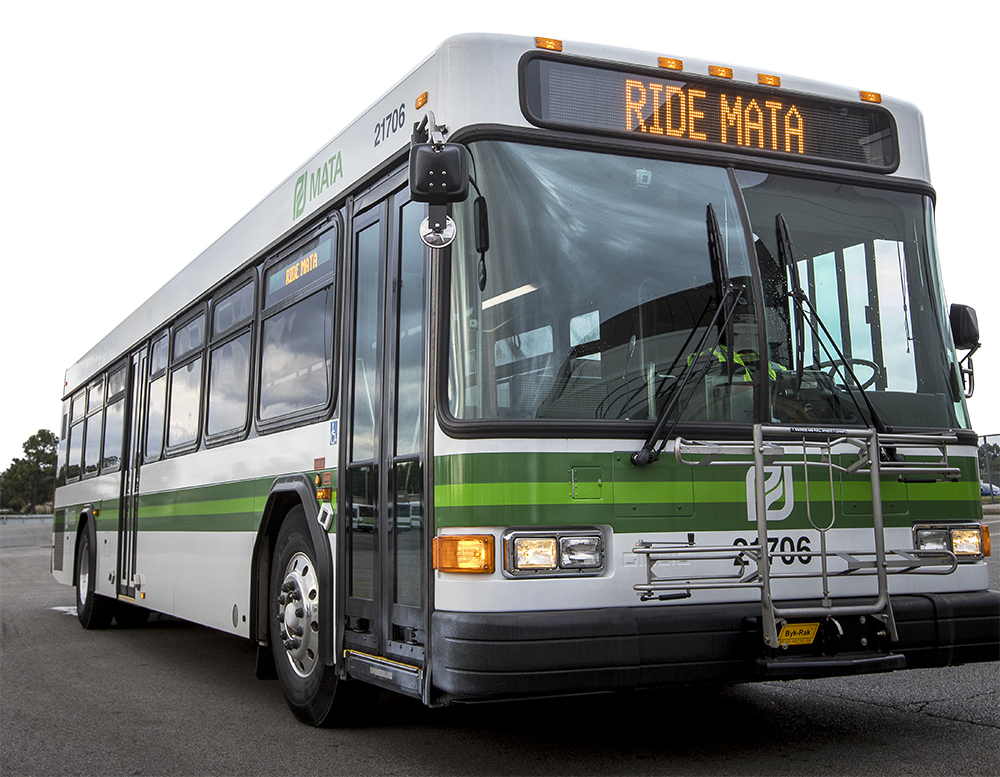While the city of Memphis has allocated $30 million to Memphis Area Transit Authority (MATA) for fiscal year 2025 (FY25), questions remain regarding the organization’s $60 million deficit.
During the June 2024 MATA Board of Commissioner meeting on Wednesday, several members of the public expressed their concern for the deficit. Prior to the meeting, organizations such as Citizens for Better Service and Memphis Bus Riders Union said they were unhappy with the organization’s previous ways of addressing the issue.
“MATA owes the city of Memphis, especially bus riders, an explanation of how it is going to solve the deficit without hurting bus riders,” Johnnie Mosley, founding chairman of Citizens for Better Service, said.
These comments came after MATA administration presented their budget proposal earlier this month to the Memphis City Council for consideration.
During the meeting, the transportation agency did not directly address the deficit. Instead, MATA said they were committed to increasing revenue and “refining [their] process of spending.” At the board meeting, MATA interim CEO Bacarra Mauldin said the council would be “more involved” with all organizations and agencies receiving money from the city.
Mauldin also said, with the city being their primary funding source, they want to make sure they are being as “transparent” as possible.
Shelby County government has allocated $1.2 million towards MATA for FY25, which Mauldin said is “consistent with where they’ve been for the past few years.” She noted that while it may seem like a small amount, their consideration in the budget means there is still the “opportunity to move forward.”
As the city has wrapped up its budget season, Mauldin said she is focused on building relationships with county commissioners and administration to procure a “higher level of funding” in the future.
“We know that the money that we have from the city of Memphis as well as Shelby County will not plug the entire hole,” Mauldin said. “We’re going to continue to work with those funding partners, but in addition we’re going to look into some other ways to get funding to close that gap. Most importantly, we’re going to look in the mirror and we’re going to tighten our own belts, and we’re going to spend smarter on the right things at the right time.”
She added that they are putting safeguards in place in order to ensure they’re being “good stewards of all the taxpayer’s money.”
Hamish Davidson of J.S. Held LLC has been retained by the organization as an external CFO and presented on “financial controls” during the board meeting. Davidson remarked that finance is “an area where if you don’t have the proper controls then your finance department can leak like a sieve.” To prevent this, Davidson said they are working to “spend smarter” and make sure they know where every dollar is spent.
Davidson said they currently have an understanding of MATA’s “historical processes and procedures” as well as their accounting systems. They also have gained the trust of employees.
However, he said they still need to identify their risk profiles and “current and future state of their budget and headcount,” and “determine the appropriate controls, reporting, and policies necessary.”
“A lot of these processes need to be updated,” Davidson said. “They’re totally out of date and more importantly they also need to be followed to the letter.”
Davidson said when he was retained in February, he thought they would be “long finished” by now in addressing these things, but he said it’s been put on the back burner due to more “pressing issues” related to MATA’s financials such as preparing the budget for FY25.
He said over the next few weeks they could create a timetable to present to MATA’s Board of Commissioners.
Close to the end of the meeting, the board opened the floor for public comment. They noted that this portion was for receiving comments and that they would not engage in a “spirited debate.”
Some participants made comments about bad service from both the agency and bus drivers; however, most complaints were about the agency’s finances.
Joe Kent of the Taxpayer Justice Institute criticized the agency for saying they lead with transparency when he said they are “anything but transparent.”
“If you want to collaborate with the public you need to answer questions,” Kent said. “How are you operating with a negative $10.1 million in cash? I just don’t understand that.”
Another participant suggested that the organization was “being investigated and some indictments were coming down.”
The board said that while they were not going to go back and forth with participants, they would follow up with them individually.
